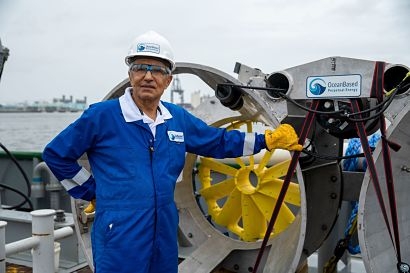
During a recent four-day mission aboard a 150-ft. research vessel, OceanBased demonstrated that clean energy can be generated for a consistent 24 hours simply by enabling the perpetually flowing current of Florida’s Gulf Stream to turn specially configured turbines.
During late July or early August 2020, OceanBased, working with Florida Atlantic University’s Southeast National Marine Renewable Energy Center researchers and engineers, will deploy Acoustic Doppler Current Profiler (ADCP) systems within the Florida Gulf Stream to record current velocities throughout the entire water column at predetermined strategic locations. OceanBased plans to utilise six ADCPs, from which it will retrieve, maintain and collect data. The ADCPs will be redeployed every six months for the next two years.
“We’re trying to define the area and locate how close to shore our equipment can actually be and still leverage the optimal water velocity” said OceanBased Marketing Vice President David House. “We’re also evaluating comparative statistics with measurements taken from previous deployments over the years by Florida Atlantic University. Why go 20 miles offshore if we can accomplish our mission at 10 miles or maybe even less? Each mile of cable that would run from our equipment to a shoreline substation would cost millions of dollars.”
During the planned ADCP deployment, OceanBased also will seek an opportunity to analyze the water velocity patterns and direction, while taking into account potential hurricane and tropical storm impacts to determine the optimal placement of its equipment. The resulting data is critical in determining the final configuration for OceanBased’s turbine gearboxes and power conversion equipment.
For additional information:

